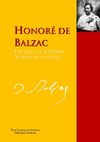Kitabı oku: «The Political History of England – Vol XI», sayfa 17
CHAPTER X.
PROBLEMS IN SOUTHERN EUROPE
The events of the year 1820 subjected the European concert to a severe strain. An insurrection broke out in Spain on January 1, and on March 9 the king was forced to swear fidelity to the obsolete constitution of 1812. The result was to plunge the country into disorder, as both the clerical party and the extreme revolutionists refused to accept the constitution. Meanwhile the assassination by a working man of the Duke of Berry, who died on February 14, 1820, had occasioned a new royalist reaction in France, and had increased the general fear of the revolutionary party. The Bourbon succession had seemed to depend on his life, for his son, the Count of Chambord, was posthumous. On receiving the news of the Spanish revolution the tsar, already tiring of his liberal enthusiasm, fell back on his scheme for exercising paternal discipline over Europe. He proposed in April that the ambassadors at Paris should issue a joint remonstrance requiring the Spanish cortes to disavow the revolution, and to enact severe laws against sedition. Failing this, he proposed joint intervention, and offered for his own part to send an army of 15,000 men through North Italy and southern France to co-operate in the suppression of the revolution. To this Castlereagh replied that England would never consent to a joint intervention in Spain. Metternich was too much displeased with the Russian encouragement of secret societies in Italy to wish to see Russian troops in that country, and both Castlereagh and Metternich wished to keep Spain free from French influence. In the face of this opposition Russia could not, and France would not, do anything, and all thought of intervention was postponed. It was the last time that Castlereagh was able to assert the principle of non-intervention without breaking up the European concert.
REVOLUTIONS IN SOUTHERN EUROPE.
July and August saw three new revolutions. A rebellion at Nola on July 2 ended in King Ferdinand of the Two Sicilies taking the oath on the 13th to the Spanish constitution, then regarded as a model by the liberals of Southern Europe. But the grant of a constitution to Naples suggested a demand for independence at Palermo. On July 17-18 that city rose in revolt and was only subdued by the Neapolitans in the beginning of October. Portugal, too, was in a disturbed state. The royal family had been absent for nearly thirteen years, and the country had for five years been governed by Lord, afterwards Viscount, Beresford as marshal and commander of the Portuguese army. In April, 1820, he sailed for Brazil, intending to induce the king, John VI., to return. During his absence a revolution took place at Oporto on August 24, a provisional government was established, and all British officers were dismissed. This was followed by a similar revolution at Lisbon on September 15. Beresford on his return was forbidden to land, and retired to England. On November 11, the Spanish constitution was proclaimed in Portugal, but six days later another proclamation left the question of determining the constitution to the cortes which were to be elected on a popular suffrage.
The Neapolitan revolution raised at once the question of intervention. In this case Castlereagh held that Austria had a right to interfere, because her position as an Italian power was endangered by the revolution, and because the revolution was a breach of the secret treaty of 1815 which had received the sanction of the British government. He still objected to any joint interference and was opposed to the reference of the question to a congress. Austria could not have interfered alone without offending the tsar, who clung to the principle of joint action. The question of intervention was therefore postponed for the present. France, however, being jealous of Austrian influence in Italy, demanded the meeting of a congress, and such a meeting was accordingly held at Troppau on October 20. To this congress Austria, France, Prussia, and Russia sent plenipotentiaries. Great Britain carried her opposition to joint interference so far as to refuse to join in the deliberations, though Sir Charles, now Lord, Stewart was sent to Troppau to watch the proceedings. Metternich, on finding that he could not avoid the meeting of a congress, determined to lead its proceedings, and, before it met, drew up a memorandum defining his own views about intervention. These views were accepted at the congress by Prussia and Russia as well as by Austria; and a protocol was issued by the three powers declaring that a state in which a revolution should occur was dangerous to other states, and ceased to be a member of the European alliance, until it could give guarantees for its future stability. If such a revolution placed other states in immediate danger, the allied powers were bound to intervene by peaceful means, if possible, or if need were, by arms. Before parting, the congress invited Ferdinand of the Two Sicilies to attend an adjourned meeting, to assemble early in the following year at Laibach.75 Against these decisions Castlereagh protested in vigorous terms, and more especially against any possible application of the principle of intervention to England; France under the Duke of Richelieu joined in neither the protocol nor the protest. The liberal tendencies of the tsar had been quenched by recent events, so that, instead of a concert of Europe, there was left only a concert of absolute monarchs.
AUSTRIAN INTERVENTION.
In January, 1821, the sovereigns of Austria, Prussia, and Russia met the King of the Two Sicilies at Laibach. France had vainly attempted to mediate between the King of the Two Sicilies and his people. But the Neapolitans were not satisfied with any vague promise of a constitution, and before allowing their king to depart for Laibach, held him pledged to the observance of an impossible condition, the maintenance of the Spanish constitution of 1812. The king's oath to preserve this particularly objectionable constitution was regarded by Austria as sufficient to preclude negotiation, and it was resolved that she should restore him by force as an absolute monarch, and should occupy the Neapolitan territory. The duration of this occupation was reserved as a question to be discussed at the next European congress, which it was intended to hold at Florence in the autumn of the next year. After a show of resistance at Rieti the Neapolitans submitted, and the Austrian army entered Naples on March 24. The restoration of absolute government was accompanied by severities towards the constitutionalists, but Austria would not allow any repetition of the bloodshed of 1799.
While the Austrian army was marching southwards, a new revolution broke out in Piedmont. The Spanish constitution was proclaimed at Alessandria on March 10, and at Turin on the 12th. On the 13th, Victor Emmanuel I., King of Sardinia, abdicated, appointing as regent his distant cousin Prince Charles Albert of Carignano, who had been in communication with the revolutionary party. The regent immediately accepted the Spanish constitution on condition of the maintenance of the line of succession and of the Roman catholic religion. The new king, Charles Felix, was at Modena when the revolt occurred. He refused to acknowledge the new constitution, and ordered Charles Albert to betake himself to Novara, where the royalist troops were collecting. On the night of the 21st, Charles Albert fled from Turin to Novara, but the constitutional party did not submit without a struggle. On April 8 the Austrians crossed the frontier and, uniting with the royalists, defeated the constitutionalists at Novara. Two days later the royalist army entered Turin. The two Italian revolutions had thus ended in an Austrian occupation of the two largest Italian states which were not ruled by members of the imperial house. The Papal States were now the only Italian principality of any size which was not dominated by Austria.
So far Austria had been sufficiently powerful in the congresses of the powers to be able to prevent interference with other states where it was not to her interest, and to incline the balance in favour of it where intervention would strengthen her. The reopening of the Eastern question made her ascendency more difficult to maintain. The congress of Laibach had been closed, but the sovereigns had not yet departed, when the news arrived that a revolt, engineered by Greeks with the pretence of Russian support, had broken out against the Turks in Moldavia and Wallachia. Russia at once agreed with Austria that the principle laid down at Troppau applied to this revolt; the insurrectionary leaders were disowned by Russia, and by the end of June Turkish authority was restored in the Danubian principalities. So far the action of Russia had met with the approval not only of Austria but of Great Britain, and Castlereagh had written to Alexander urging him not to join the Greek cause, which appeared to him to be part of an universal revolutionary movement.
Early in April, however, a more serious insurrection broke out in the Morea, and was followed a few weeks later by one in Central Greece. The war was disgraced from the first by inhuman massacres on both sides. The Greek patriarch at Constantinople together with three archbishops was executed by the Turks on Easter Sunday, April 22. A great ferment in Russia was the result, where the people were anxious to assist their co-religionists and to avenge the death of the patriarch, whom they regarded as a martyr. The grievances of the Orthodox religion were seconded by the proper grievances of Russia. Greek ships, sailing under the Russian flag, had been seized in the Dardanelles; the principalities of Moldavia and Wallachia had not been evacuated by the Turkish troops as was required by treaty, while an ancient treaty rendered it possible to regard the wrongs of the Greek Church as the political wrongs of Russia. A Russian ultimatum was despatched on June 28; and, while awaiting a reply, Russia consulted the other powers as to the course they would pursue in the event of war breaking out between Russia and Turkey, and the system with which they would propose to replace the Turkish domination if it came to be destroyed. The principle of joint intervention, adopted at Troppau, seemed to require the powers to give their support to Russia. Great Britain and Austria, however, refused to treat war with Turkey as a possibility. The Greek revolt seemed to them to express the principle of revolution, and the tsar himself became inclined to take this view of the situation when the Greeks established an advanced republican form of government. They accordingly distinguished between the treaty rights of Russia, which the four powers would urge Turkey to respect, and the provision of a more secure state of order in Turkey, which would be discussed at a European congress. The Russian ambassador had been withdrawn from Constantinople on August 8, and the negotiation was conducted mainly by Lord Strangford, the British ambassador at Constantinople, who was supported by Austria, France, and Prussia. He succeeded in inducing Turkey to evacuate the principalities and to open the Dardanelles to ships of all nations, but Turkish obstinacy deferred the conclusion of a treaty.
THE SPANISH QUESTION.
Meanwhile the Spanish question became more critical. As time went on Spain grew less instead of more settled, while the ultra-royalist party gained strength in France. To them the position to which the Bourbon King of Spain had been reduced seemed at once an insult and a menace to France. The establishment of Austrian supremacy in Italy made them long for French supremacy in Spain. In August, 1821, the presence of yellow fever in Spain was made the occasion for establishing a body of troops, professing to act as a sanitary cordon, upon the frontier. They were retained there when the fever had disappeared, and their numbers were gradually raised to 100,000. In December, 1821, an ultra-royalist ministry entered on office in France under the leadership of Villèle. Villèle, like King Louis XVIII., was opposed to war, but he might easily be forced to adopt the war policy which was popular with his party. Fresh evidence was given of the contagious nature of the Spanish revolution by the adoption, on the 27th of the preceding June, by the Portuguese cortes, of a constitution modelled on that of Spain. Six days later the Portuguese king arrived at Lisbon and was induced to sign the new constitution. This event was the more significant in the eyes of the powers, because the proclamation of the constitution had been accompanied by an insult to the Austrian embassy.
If Spanish liberalism placed Spain in danger of a war with France, Spain was in equal danger of a war with Great Britain because she was not liberal enough. The revolution of 1820, instead of reconciling the revolted colonies, had served as an example to the loyal colonies to seek their liberty. By the summer of 1822 Upper Peru was the only part of the American mainland where Spain held more than isolated posts; she had been compelled to sell Florida to the United States, and San Domingo had joined the revolted French colony of Hayti. The Spanish cortes, however, were even more resolute than the king had been to maintain the authority of the mother country, and protested against the right which the British had claimed and exercised of trading with the revolted colonies. The disorderly state of these colonies encouraged the growth of piracy, which flourished even in the ports which still acknowledged the supremacy of Spain. Special irritation was caused in 1822 by the condemnation of the Lord Collingwood for trading with Buenos Ayres, a place over which Spain had exercised no authority for twelve years. In the same year the new navigation acts greatly increased the facilities for trading with Great Britain enjoyed by such places in America as admitted British ships. In April, 1822, the United States recognised the independence of Colombia, but Great Britain refrained as yet from recognising any of the Spanish-American states, partly because of their unsettled condition and partly because the threat of recognition was a valuable diplomatic counter in negotiations with Spain.
Instead of a congress being held at Florence it was finally determined that the Italian questions should be referred to a congress which was to meet at Verona in September, 1822, and was to be preceded by a conference at Vienna on the Eastern question; there could, however, be little doubt that the Spanish question would also be raised. Castlereagh, or as we should now call him Lord Londonderry, would have preferred that Great Britain should stand aloof from the Spanish and Italian questions, but he desired that she should participate in the discussion of the Eastern question; it was accordingly arranged that he should represent Great Britain at the conference of Vienna, and he had actually drawn up instructions in favour of non-intervention in Spain and of accrediting agents to some of the South American republics, when his departure was prevented by his death on August 12. He was succeeded by Wellington as plenipotentiary, and by Canning as foreign secretary. The change was, however, one of persons rather than of policies. Canning was less conciliatory in manner, and had less sympathy with the principle of European congresses, but was prepared to carry on Castlereagh's policy on the questions which for the time being agitated the world.
THE CONGRESS OF VERONA.
The Spanish question was, as a fact, the one question which occupied the attention of the powers at Vienna and Verona. In consequence of the efforts of Strangford at Constantinople and his own growing dissatisfaction with the Greeks, the tsar was willing to allow the Greek question to drop; at the same time the kings of the Two Sicilies and Sardinia themselves desired the continuance of Austrian occupation, and thus postponed the Italian question. As in 1820, Austria held the balance between two rival policies. She had then thrown her weight on the side of non-intervention, and, had the Spanish question stood by itself, she would probably have done so again. But in Metternich's opinion the Spanish question was of less importance than the Eastern, and it was important that the tsar should not doubt her loyalty to the principle on which she had persuaded him to refrain from an attack upon the Porte.
On passing through Paris on his way to Vienna, Wellington found Villèle desirous of avoiding war, but counting on it as a probability. He arrived at Vienna too late for the actual conference, but in time to have some conversation with Metternich and the tsar before leaving for Verona. So far it appeared that Montmorency, the more active of the French representatives, though professing to desire a peaceful termination to the dispute between France and Spain, advocated French intervention, if intervention should be necessary, but was opposed to the passage of foreign troops through France. Metternich and the tsar distrusted French troops when brought face to face with revolutionists, and Metternich was therefore opposed to intervention, while the tsar still desired to be allowed to march a Russian army on behalf of the combined powers through Piedmont and southern France into Spain. Metternich of course did not wish to see any Russian troops to dispute Austria's supremacy in Italy. But all three desired the suppression of the Spanish constitution, if they could find a trustworthy instrument. Wellington adhered to Castlereagh's policy of non-intervention.76
When the congress opened at Verona on October 20, Montmorency proposed three skilfully drawn questions. Avoiding the direct discussion of hostilities, he asked whether, if France were compelled to withdraw her ambassador from Madrid, the other powers would do the same. Then, assuming their sympathy, he asked what form of moral support they would give her in event of war. Lastly, he propitiated Russian views of joint action by asking what form of material support the powers would give France, if she should require it. Wellington refused to consider hypothetical cases, but the sovereigns of Austria, Prussia, and Russia answered the first question in the affirmative, and assured France of their moral, and, if necessary, of their material support. So far no power had abandoned its original attitude, but the promises had been given in a form which lent itself best to the sole interference of France, as the representative of the congress. Metternich now advocated British mediation, but this was refused by Montmorency on the ground of the differences between the policy adopted by Great Britain and that adopted by the other powers. It was then agreed that Austria, France, Prussia, and Russia should address notes of the same tenor to their ambassadors at Madrid, who should make corresponding representations to the Spanish government, and a procès verbal was concluded between these four powers defining the causes which would justify the recall of their ambassadors.
As the French king was not present at Verona, the sending of the French note was made conditional on the approval of the French government. The occupation of Spain by foreign troops was to be discussed when the King of Spain should have been restored to liberty. The tenor of the notes agreed on seemed to Wellington more likely to inflame the Spanish government than to win concessions, and he lost no time in informing Villèle through Sir Charles Stuart, the British ambassador at Paris, of the course of negotiations.77 Although Wellington had been assured at Verona that Villèle's decision would not affect the transmission of notes from the other courts, he hoped and Canning believed that it was still in the power of Villèle to arrest the machinery that Montmorency, his representative at Verona, had set in motion. On November 30 Wellington left Verona, but the emperors remained. On December 5 Villèle sent a message to Verona proposing to postpone sending the despatches till an occasion for breaking off diplomatic relations as defined in the procès verbal should arise, and suggesting that the ambassadors at Paris should determine when such an occasion had occurred. This proposal was rejected. It was inconsistent with Russia's desire for war, while Austria was anxious to please Russia in the west, so long as she remained pacific in the east. The three eastern powers therefore resolved that they would only delay sending their notes till the French note was ready.
THE SPANISH QUESTION.
While this negotiation was pending, Wellington arrived at Paris, where, under strong pressure from Canning,78 he renewed his offer of mediation with Spain. It was declined. On the arrival of the reply from Verona, Wellington was informed that even if the other powers sent their despatches to Madrid, France would withhold hers. In the end, Villèle dismissed Montmorency for the independent line he had taken, and sent a milder note than the three eastern powers, but withdrew his ambassador from Madrid soon after the other ambassadors had departed. Great Britain was in consequence the only great power which still continued diplomatic relations with Spain at the end of January, 1823. In the course of the negotiations two curious suspicions had occurred to Canning and Villèle respectively. Canning imagined that France would employ the threats of her allies as a show of force to compel Spain to join her in an attack on British commerce in the West Indies, while Villèle suspected that the British defence of the political independence of Spain was to be recompensed by the cession of some Spanish colonies in America.
Meanwhile, the war party before which Villèle had had to bow, was having its own way in France. On January 28 Louis XVIII. in opening the chambers announced the withdrawal of his ambassador, and declared that 100,000 Frenchmen were ready to march to preserve the throne of Spain to a descendant of Henry IV., and to reconcile that country with Europe. The sole object of any war that might arise would be to render Ferdinand VII. free to give his people institutions which they could not hold except from him, and which, by securing their tranquillity, would dissipate the unrest in France. Canning protested against the apparent implication that no valid constitution could rest on any other basis than that of France did, as also against the apparent claim to interfere in virtue of the family relation of the dynasties of France and Spain; but he vainly endeavoured to persuade the Spanish government to come to some agreement with its king. On March 31, when war seemed imminent, Canning despatched a note to Paris defining the limits of British neutrality. The independence of Spain and integrity of its dominions were to be recognised; it was not to be permanently occupied by a military force, and France was not to attempt to gain either by conquest or by cession any of the revolted colonies of Spain in America. At the same time he disclaimed any intention of acquiring any of those colonies for Great Britain.79
PORTUGAL AND BRAZIL.
War between France and Spain began with the passage of the frontier by the Duke of Angoulême on April 7. On May 23 he entered Madrid. On October 1 the Spanish constitutionalists were compelled to set their king at liberty to join the French, and on November 1 the war was terminated by the surrender of Barcelona to the royalists. The restoration of Ferdinand VII. to absolute power was followed by a furious and vindictive reaction, which Angoulême strove in vain to moderate. For the next five years French troops occupied the country, but Angoulême showed his disapproval of the method of government by refusing the decorations offered him by Ferdinand. The restoration of absolutism in Spain led to events in Portugal which forced Great Britain to intervene and strengthened the difference between her policy and that of the continental powers. The new Portuguese constitution was unpopular, especially in the army, and as early as February, 1823, there was a revolt against the constitution, but order was restored in April. On May 26 another absolutist revolt broke out, and the rebels were joined next day by the king's second son, Dom Miguel, then twenty years of age; on the 29th the revolt spread to Lisbon; on the 31st the king promised a revised constitution, and on June 2 the cortes ceased to sit. The government resolved itself into an absolute monarchy, which continued till the following year, in spite of the appointment of a junta under the presidency of Palmella to draw up a new constitution. The ambassadors of Austria, Prussia, and Russia opposed the granting of a new constitution, and Dom Miguel still maintained a threatening attitude. Palmella accordingly applied to Great Britain for troops to support his government. This request created no little difficulty. It was impossible for Great Britain to allow the government of Portugal to fall into the hands of a party resting for support on the absolutists in Spain and the French army, and it was equally impossible to employ British troops to maintain the cause of the King of Portugal against his ultra-royalist subjects when Great Britain had protested so vigorously against the kings of Spain and the Two Sicilies receiving foreign assistance against their liberal subjects; there were moreover no troops that could well be spared.
Canning accordingly contented himself with despatching a naval squadron to the Tagus to act as a moral support to the king. As the event proved, this squadron was sufficient to determine the course of events. At the same time Canning refused to guarantee any constitution, though when France joined the eastern powers in threatening the proposed constitution, he intimated his readiness to resist by force of arms any foreign intervention in Portugal. On April 30, 1824, Dom Miguel attempted another coup d'état, and was for nine days in possession of Lisbon, where he made wholesale arrests of his political opponents. John VI. was, however, supported by all the foreign ambassadors, and on March 9, by their advice, he went on board the British ship of war, Windsor Castle, where he summoned his son to appear before him. Dom Miguel thought it wisest to obey; the king sent him abroad, and the attempt at a revolution was over for the present. The junta appointed in the previous year to frame a constitution now reported in favour of a revival of the ancient cortes, and this proposal was accepted by the king. The cortes were not, however, actually assembled; still, the mere fact of Dom Miguel's absence left the government a little stronger.
Meanwhile, the relations between Portugal and Brazil occasioned difficulties between the former country and Great Britain. On leaving Brazil, King John VI. had entrusted the government to his elder son, Peter, to whom he had given secret instructions to proclaim himself Emperor of Brazil in case he found it impossible to maintain the union between Brazil and the mother country. Acting on these instructions, Peter had proclaimed the independence of Brazil on October 12, 1822, adopting for himself the style of constitutional emperor. Next month Lord Cochrane, who had been in the service of Chile, quitted it for that of Brazil. Neither party in Portugal was prepared for the separation of Brazil, and it was therefore opposed, but without much effect, by the home government. By the end of 1823 Cochrane had captured all the Portuguese posts in Brazil, and in August, 1824, he suppressed a republican movement in the north of that country. On July 23 of the same year Great Britain signed a commercial treaty with the new empire. This irritated the Portuguese government. Meanwhile, Beresford, who had returned to Portugal in a private capacity, had been requested to resume the command of the Portuguese army. This he refused to do so long as the Count of Subsérra, a French partisan, held office at home. There was a difficulty in forming a ministry without him, and eventually Subsérra became virtual prime minister, and Beresford was excluded from office. In order to obtain an excuse for the introduction of French troops into Portugal, Subsérra sent a request to Great Britain for a force of four or five thousand, knowing it would be refused. Great Britain's refusal had not, however, the expected consequence, because the influence of the other powers at Lisbon was weakened by their anti-constitutional policy. In July, 1825, the representatives of Austria, Brazil, Great Britain, and Portugal assembled at London to consider the relations of Portugal and Brazil. While the conference was sitting it was discovered that Subsérra was carrying on separate negotiations with Brazil. Canning was now able to obtain his dismissal, which was followed by the recall of the French ambassador, De Neuville, who had been the principal opponent of British influence at Lisbon. As a result of this conference the Portuguese government on August 29 recognised the independence of Brazil.80
The restoration of absolute government in Spain revived the question of Spanish America. Ferdinand VII., on recovering his authority, proposed a congress at Paris for the consideration of South American affairs. Canning, however, declined his invitation, and it was thought useless to hold a congress without the participation of Great Britain. The position in which Great Britain had been placed by the negotiations of Verona, as diplomatic champion of Spain, had caused her to suspend her complaints about the treatment of her merchant vessels trading with the revolted colonies; but disorder continued, and on one occasion the British admiral was authorised to land in Cuba to extirpate the pirates using the Spanish flag. Canning was determined that French force should not be employed to reduce the revolted colonies, and in October, 1823, he informed the French ambassador, Polignac, that he would acknowledge the independence of those colonies if France assisted Spain in her attempts to reduce them81– a somewhat empty threat, as the commercial interests of Great Britain would have compelled him to acknowledge them in any case as soon as there should be settled governments in existence with which he could treat. Diplomatic agents were in fact appointed in most of the revolted colonies before the end of this year.











